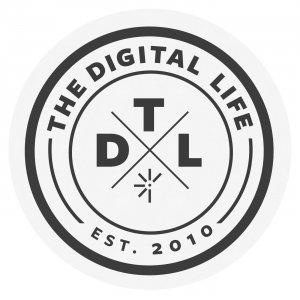The Digital Life

On Open Organizations
Jon: Welcome to episode 121 of the Digital Life, a show about our adventures in the world of design and technology. I'm your host, Jon Follett, and with me is founder and co-host, Dirk Knemeyer.
Dirk: Greetings Jon, what's new?
Jon: For our topic this week, I'd like to explore a little bit the culture of the so called open organization. The open organization has its roots, or some of its roots, in Open Source software, where as we know, people collaborate for the good of the cause and contribute what they can and what they have time for. As we know, many companies have been built up around the foundations of Open Source. I've noticed as the creative class economy, the digital economy, the sort of science driven and software driven economy come to the fore, we've really got new types of organizations where creative class people are finding new ways to work together.
There are certain tenants or ethics or philosophies that help organize these kinds of workers, and kinds of people, together, that are slightly different from the 20th century counterparts. I entered the workforce being a part of these hierarchical organizations, are giving way to more open structures, more transparent sharing of information in these structures, and I think it's beginning to really take hold, in terms of large organizations, adopting it, as well as smaller organizations, like our own Involution Studios, has some elements of the open organization. I thought that would be a good topic for the two of us to dig into today.
Dirk: Sounds great.
Jon: I wanted to start off with the idea of having transparency within the organization, so sharing of information and letting people know what might have been deemed sensitive info at one point, is hallmark of the so called open organization. That can extend to things like people's salaries over at Whole Foods, for instance you can look up anybody's salary, your boss's salary, your boss's boss. That creates a certain kind of environment that hopefully begets trust, or a greater trust, of the organization because that information is at your finger tips, or at least available for the asking.
When I joined Involution, one of the tenets that we talked about here was telling the truth, being transparent, both internally and externally to our clients. I know that for me, that was a slightly different approach because I'd always been a part of hierarchical, or more hierarchical organizations, where information was kept hidden at times, especially something sensitive like salary information wouldn't have been shared amongst people at other organizations I was a part of. Dirk, when you and Juhan were sort of assessing out the level of openness and this idea of tell the truth, what were sort of the influences and the reasons you did that? How do you feel about that level of openness within our operations here?
Dirk: Yeah, I think there's a couple of aspects to it. I mean, one is, for Juhan, the idea of openness and transparency is something that goes back a long time, and is very core to him philosophically. That was something he brought in, just as an assumption. I think that he had tried to implement with past employers, but especially going back to the early and mid 2000's, even the 1990's, as you might imagine, that was not with limited success, depending on the place.
From my perspective, I was certainly accustomed to the more traditional, closed organization, but my personal philosophies outside of work are socialist, or even communist in nature, which is to say it's not about power and control and top down, it's about everybody's in this together, creating healthy environments. For the whole history of Involution, that's something that I have aggressively been doing in pretty unusual and progressive ways, but not to include the specific things of the radical transparency. Our sort of difference takes on it, we're able to come together. For me,






 Visit Podcast Website
Visit Podcast Website RSS Podcast Feed
RSS Podcast Feed Subscribe
Subscribe
 Add to MyCast
Add to MyCast